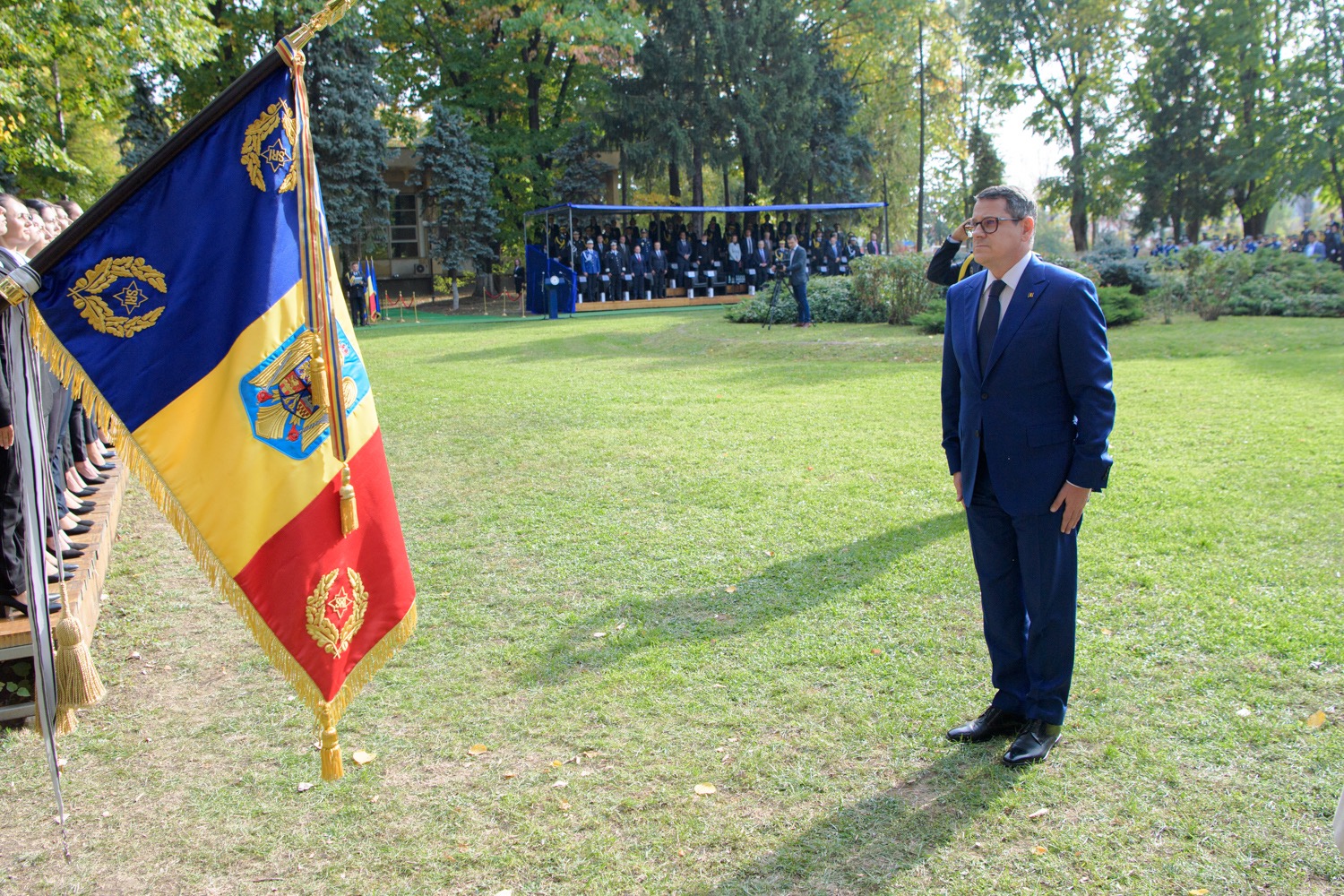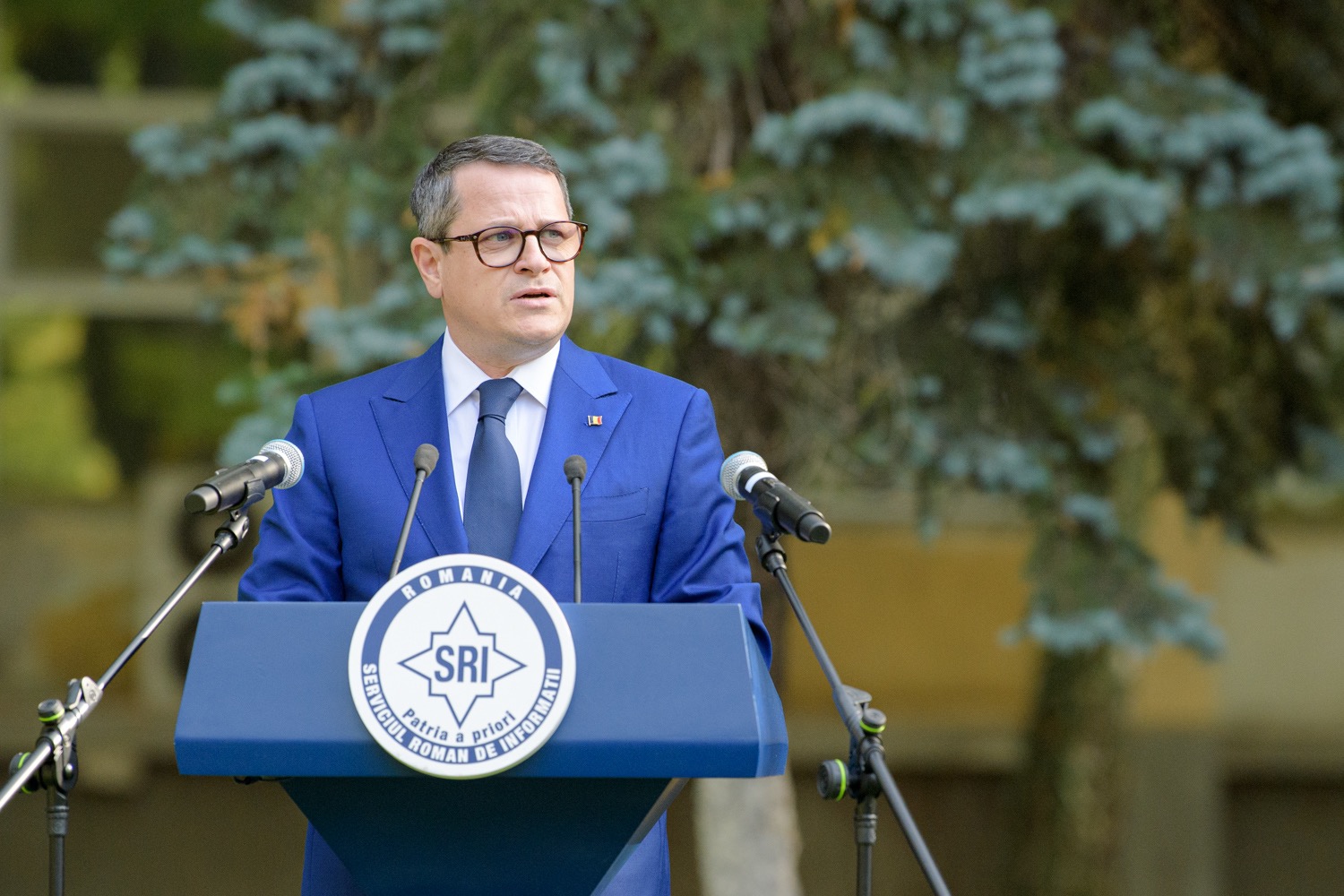“Mihai Viteazul” National Intelligence Academy’s students took the oath in the presence of the
Intelligence College in Europe’s Director
13 October 2022

The future SRI officers took the military oath today, as part of the 30th anniversary celebration of education in intelligence.
The opening of the new academic year was attended by the SRI Director, Mr. Eduard Hellvig, members of the Academy's management, teachers and parents, as well as the Director of the Permanent Secretariat of the Intelligence College in Europe, Mr. Francois Fischer. A close partner of the Romanian Intelligence Service by promoting a common culture of intelligence at the European level, he received an anniversary plaque during the ceremony.
During the festive moment, the SRI Director mentioned some important elements regarding the contemporary challenges that resulted in the paradigm shift in intelligence:
"The resilience of democratic European societies faced with destabilizing factors – such as information aggression, hybrid warfare and cyber attacks – depends today, more than ever, on the ability of intelligence to assume a proactive role in strengthening the understanding of threats, in effective communication with society and in building a common strategic culture. Since the months preceding the start of the war launched by the Russian Federation against Ukraine, such solutions involved the open and real-time use of information from the intelligence area in the public communication at diplomatic level in the Euro-Atlantic space."
Mr. Eduard Hellvig also spoke about the role of the European Intelligence College in Europe and the taking over of its Presidency by the SRI in February 2023:
"The concrete initiatives that we will propose at the end of this year to the Board of Directors of the College include actions aimed at strengthening and diversifying the educational offer, developing ideas and partnerships between the involved academic institutions, encouraging the organic development of expertise in areas of knowledge relevant to the European intelligence communities and services."
The Intelligence College in Europe brings together 30 countries and their intelligence communities.
According to Mr. Francois Fischer, “The College opens doors that were traditionally closed. It creates links between services and the academic world and it has the role of interacting with the public.”
He added that “no single European state has the means to manage all the risks alone... The good news is that they don't have to. We have the chance, at the European level, to have this habit of cooperation: which gives us the right basis for creating a common culture."
The first exploratory partnership project of the "Mihai Viteazul" National Intelligence Academy, launched together with ICE members and affiliated universities from Croatia, Finland, Germany, Lithuania and Spain, was also discussed.
"By bringing together academic expertise and national perspectives, this approach aims to build a training program meant to increase societal resilience to hybrid threats – we are thus trying to identify common solutions to transnational threats and to approach the strengthening of resilience as a combined response of European democratic societies”, said the SRI Director.
The young people who chose a military career in the SRI were welcomed to the new profession:
"You're going to have a fully equipped center, almost entirely digitized, labs, study rooms."
Equally, "the complicated moment for Europe and for the values we believe in" was brought to the students’ attention:
„“The last seven months have abruptly and irreversibly redesigned the significance of this profession among the armed forces of a nation. Romania's membership in the North Atlantic Alliance is the security guarantee we needed for times like these. And if until recently some did not understand why it is important to be in NATO, today they understand what it would have been like if we did NOT belong to this system of political and military values. Basically, the present would have been much more unpredictable, with possible dramatic consequences for Romania."






Social media